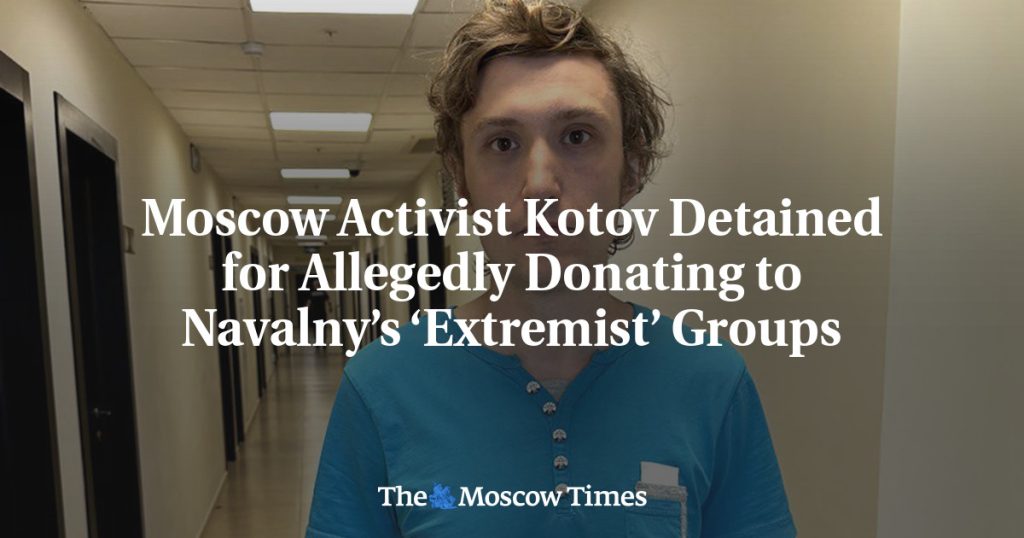Konstantin Kotov, an activist who had previously served time in prison for breaking Russian protest laws, was detained for donating money to Alexei Navalny’s outlawed political organizations. He was arrested during the 2019 Moscow election protests and ended up serving 18 months for multiple breaches of Russian protest laws. His original four-year sentence was reduced after President Vladimir Putin instructed prosecutors to review his sentence. Rights groups reported that law enforcement authorities searched Kotov’s home and took him in for questioning as part of a criminal investigation into alleged donations he made to Navalny’s political organizations. In 2021, a Russian court designated Navalny’s political and activist networks as extremist, resulting in many of his allies going into exile while others faced criminal prosecution under various charges. Financing an extremist group in Russia carries a punishment of up to eight years in prison.
Media reports suggest that a Moscow court made the decision behind closed doors to place Kotov under house arrest until October 19, granting a request issued by investigators. Kotov was accused of donating 3,000 rubles ($32.60) to Navalny’s organizations. Another activist named Viktor Levakov also faced the same ruling of house arrest after being accused of making three donations totaling 3,500 rubles ($37.87). Levakov was identified as a volunteer security guard at a makeshift memorial to the murdered opposition figure Boris Nemtsov. The actions against Kotov and Levakov highlight the ongoing crackdown on dissent in Russia and the consequences faced by those who support opposition movements like Navalny’s.
The arrest and house arrest of Kotov and Levakov demonstrate the Russian government’s crackdown on dissent and opposition movements. Navalny’s political organizations have been outlawed and labeled as extremist, leading to harsh penalties for those who support them. The financial backing of an extremist group in Russia is punishable by up to eight years in prison, putting activists like Kotov and Levakov at risk of severe consequences for their involvement in political activism. The closed-door nature of the court rulings also raises concerns about transparency and due process in the legal proceedings against individuals accused of supporting opposition movements in Russia.
The crackdown on Navalny’s allies and supporters reflects the broader political climate in Russia, where dissent is increasingly being suppressed through legal means. The actions taken against Kotov and Levakov illustrate the challenges faced by activists and individuals who seek to challenge the status quo and advocate for political change in Russia. The criminalization of supporting opposition groups like Navalny’s political organizations represents a threat to freedom of expression and political activism in the country. The house arrest of Kotov and Levakov is a clear example of how the Russian government is using legal mechanisms to silence dissent and punish those who speak out against the regime.
The situation in Russia, where opposition activists are being targeted and persecuted for their support of political opposition movements, highlights the lack of political freedoms and human rights protections in the country. The actions taken against Kotov and Levakov are part of a broader pattern of repression and censorship that has characterized the Russian government’s approach to political dissent. The international community has expressed concern over the crackdown on opposition figures and the restriction of civil liberties in Russia. The arrests and house arrest of Kotov and Levakov are emblematic of the challenges faced by those who seek to engage in political activism and advocate for democratic change in an increasingly authoritarian political environment. In this context, the support for independent media outlets like The Moscow Times becomes crucial in providing accurate and unbiased reporting on the situation in Russia.


